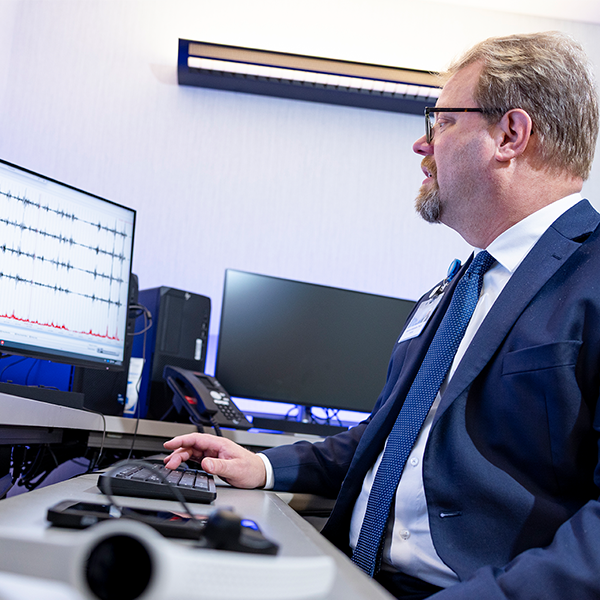-
Gene biomarker may predict gastric cancer survival, treatment response
Gastric cancer, which is also called stomach cancer, is among the leading causes of cancer death worldwide. The American Cancer Society estimates there will be nearly 27,000 new cases of stomach cancer in the U.S. this year. In a new study, Mayo Clinic researchers and collaborators have identified a gene biomarker associated with overall survival and treatment response in patients with this type of cancer. Their findings are reported in the journal Clinical Cancer Research.
The retrospective study analyzed data from multiple cohorts of patients with gastric cancer from databases in the U.S., Europe and South Korea. The researchers used a combination of single-cell, spatial and bulk messenger RNA sequencing, a cutting-edge technology platform that analyzes cells, to compare tumors of those who did and did not respond to treatment.
Previous research found that patients who had higher levels of a gene called ACTA2 didn't live as long and didn't respond well to a specific type of cancer treatment called immune checkpoint inhibitors (ICI). This targeted treatment works by boosting the immune system to fight cancer more effectively. Only about 15% of patients with stomach cancer respond well to ICI treatment, so researchers sought to find a reliable biomarker that could help identify the right candidates for ICI therapy.
The researchers wanted to find out if just looking at ACTA2 levels could help them predict patients' survival chances and how patients would respond to treatment. They found that patients with low levels of ACTA2 expression in their tumors had better overall survival and were more likely to respond positively to ICI treatment.
"Our research also revealed that, apart from the patients with a type of gastric cancer who are typically considered for ICI treatment, some other patients with gastric cancer could potentially benefit from ICI treatment if they have low levels of ACTA2 expression," says Tae Hyun Hwang, Ph.D., a cancer researcher in the field of artificial intelligence and informatics.
The researchers plan to do additional studies to strengthen and further validate these findings using larger and more diverse patient cohorts.
Dr. Hwang's team also is working to integrate multiple streams of data using artificial intelligence to provide personalized predictions for ICI response in gastric cancer patients. He says that in the future, this approach will help make gastric cancer treatment even more precise, by ensuring that patients receive the most suitable treatment for their specific tumor characteristics.
See the paper for a full author list, funding, conflicts of interest and disclosures.
—Lynda De Widt








